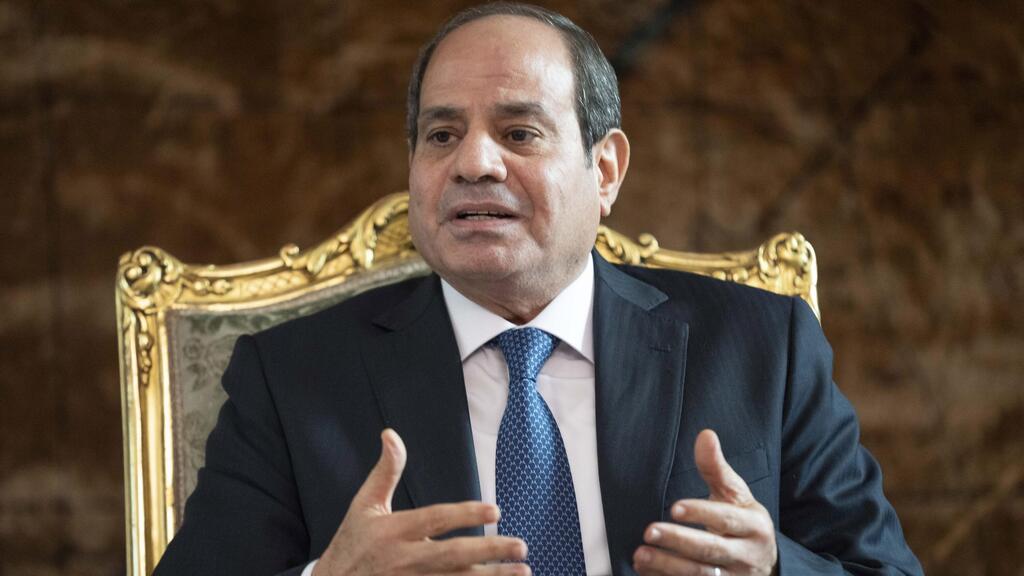Getting your Trinity Audio player ready...
The 11th summit of the Developing Eight (D-8) nations on Dec. 19 in Cairo left its mark on Egypt—not for its outcomes, but for the opulent venue where it was held. The D-8 group, founded in 1997, includes Egypt, Bangladesh, Indonesia, Iran, Malaysia, Nigeria, Pakistan and Turkey. Among the attendees were Iranian President Masoud Pezeshkian, Turkish President Recep Tayyip Erdogan, Palestinian Authority Chairman Mahmoud Abbas and Lebanese Prime Minister Najib Mikati.
During the summit, Egyptian President Abdel Fattah el-Sisi warned of "unprecedented crises in the Middle East" and highlighted the challenges developing nations face in achieving growth amid mounting obstacles.
However, the event’s discussions took a backseat to the public’s fascination—and outrage—over the lavish palace hosting the summit. The newly unveiled palace, located in Egypt’s New Administrative Capital east of Cairo, boasts a footprint of 50,000 square meters within a 2.5-million-square-meter complex. Designed in a pharaonic style, it features an expansive pyramid-shaped hall for special events.
The palace’s debut triggered a heated debate on social media. Some Egyptians praised it as a testament to architectural achievement under Sisi's leadership. Others criticized it as an extravagant misuse of state funds during a severe economic crisis, suggesting the resources could have been better spent on schools, hospitals and public welfare projects.
Get the Ynetnews app on your smartphone: Google Play: https://bit.ly/4eJ37pE | Apple App Store: https://bit.ly/3ZL7iNv
Critics also took aim at the palace’s interior decorations, which some saw as glorifying Sisi’s rule. One mural depicts Sisi’s 2013 ouster of Islamist President Mohamed Morsi, while Quranic verses adorn other walls. Notably, one verse quoting Pharaoh—“Am I not the king of Egypt, and these rivers flow beneath my feet?”—was displayed with Pharaoh’s name conspicuously omitted.
Sisi defends spending
Addressing the criticism during a visit to a police academy two days after the summit, Sisi claimed that the palace and other facilities in the New Administrative Capital were financed by the Administrative Capital for Urban Development (ACUD), a government-owned holding company established in 2016.
Still, the backlash highlights longstanding grievances about Sisi’s ambitious—and costly—construction projects. Detractors argue these projects prioritize grandeur over the dire needs of ordinary Egyptians. In 2019, construction contractor Mohamed Ali accused Sisi of corruption, claiming the president was building palaces while Egyptians went hungry. Sisi famously responded, “Yes, I am building presidential palaces—but not for myself, for Egypt.”
Mounting economic pressures
Egypt’s economic struggles are undeniable. According to the Qatari newspaper The New Arab, the country’s external debt has ballooned from $45.2 billion in 2014, when Sisi took office, to $152.9 billion as of June 2023. Recent regional conflicts, including the war in Gaza and Houthi attacks on ships in the Red Sea, have further strained the economy. Egypt reportedly lost 70% of its Suez Canal revenue, a critical income source.
The controversy over Sisi’s new palace is not occurring in a vacuum. Images of opposition forces seizing opulent palaces during Syria’s civil war have intensified scrutiny of such symbols of power across the Arab world. For many Egyptians, the palace serves as a stark reminder of their economic struggles and fuels questions about the priorities of their leadership.




